Subhojyoti Mukherjee
Learning to Reason in LLMs by Expectation Maximization
Dec 23, 2025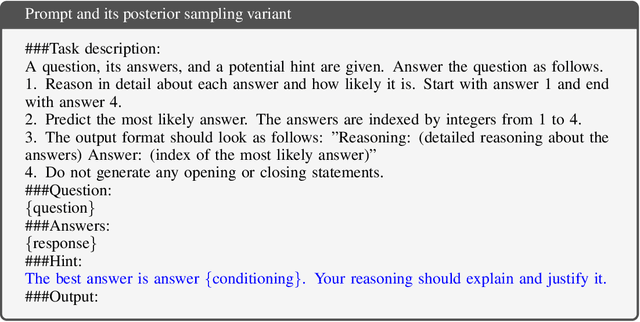

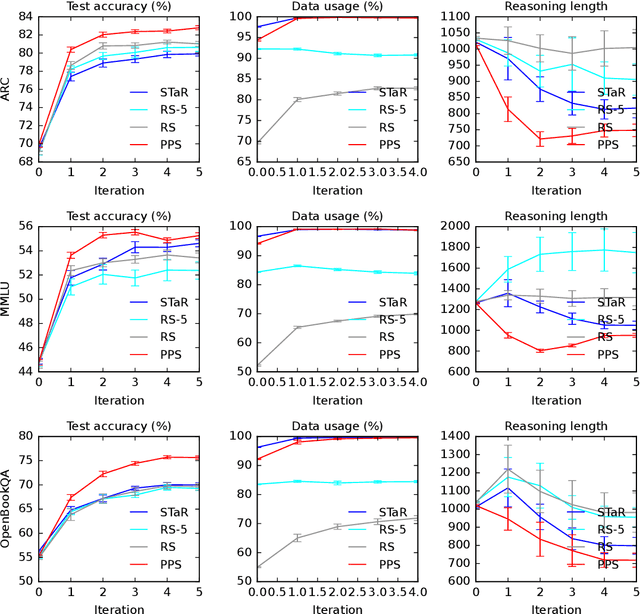
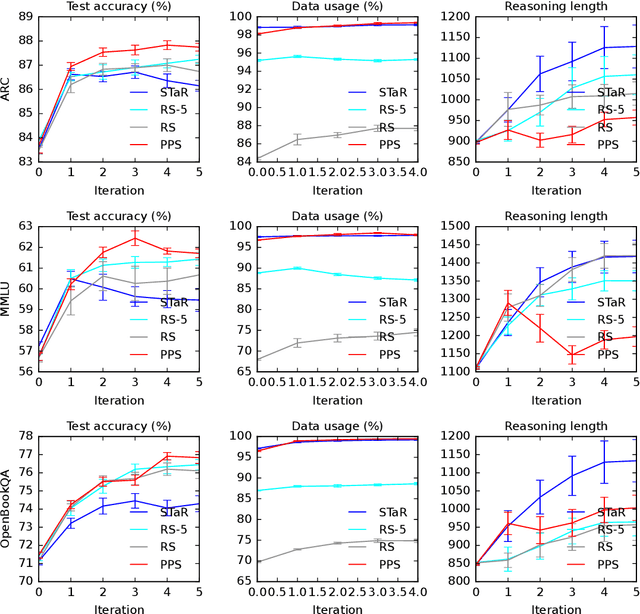
Abstract:Large language models (LLMs) solve reasoning problems by first generating a rationale and then answering. We formalize reasoning as a latent variable model and derive an expectation-maximization (EM) objective for learning to reason. This view connects EM and modern reward-based optimization, and shows that the main challenge lies in designing a sampling distribution that generates rationales that justify correct answers. We instantiate and compare several sampling schemes: rejection sampling with a budget, self-taught reasoner (STaR), and prompt posterior sampling (PPS), which only keeps the rationalization stage of STaR. Our experiments on the ARC, MMLU, and OpenBookQA datasets with the Llama and Qwen models show that the sampling scheme can significantly affect the accuracy of learned reasoning models. Despite its simplicity, we observe that PPS outperforms the other sampling schemes.
A Survey on Long-Video Storytelling Generation: Architectures, Consistency, and Cinematic Quality
Jul 09, 2025

Abstract:Despite the significant progress that has been made in video generative models, existing state-of-the-art methods can only produce videos lasting 5-16 seconds, often labeled "long-form videos". Furthermore, videos exceeding 16 seconds struggle to maintain consistent character appearances and scene layouts throughout the narrative. In particular, multi-subject long videos still fail to preserve character consistency and motion coherence. While some methods can generate videos up to 150 seconds long, they often suffer from frame redundancy and low temporal diversity. Recent work has attempted to produce long-form videos featuring multiple characters, narrative coherence, and high-fidelity detail. We comprehensively studied 32 papers on video generation to identify key architectural components and training strategies that consistently yield these qualities. We also construct a comprehensive novel taxonomy of existing methods and present comparative tables that categorize papers by their architectural designs and performance characteristics.
Learning to Clarify by Reinforcement Learning Through Reward-Weighted Fine-Tuning
Jun 08, 2025
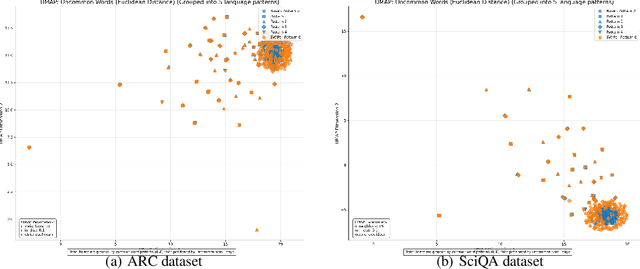


Abstract:Question answering (QA) agents automatically answer questions posed in natural language. In this work, we learn to ask clarifying questions in QA agents. The key idea in our method is to simulate conversations that contain clarifying questions and learn from them using reinforcement learning (RL). To make RL practical, we propose and analyze offline RL objectives that can be viewed as reward-weighted supervised fine-tuning (SFT) and easily optimized in large language models. Our work stands in a stark contrast to recently proposed methods, based on SFT and direct preference optimization, which have additional hyper-parameters and do not directly optimize rewards. We compare to these methods empirically and report gains in both optimized rewards and language quality.
A Personalized Conversational Benchmark: Towards Simulating Personalized Conversations
May 20, 2025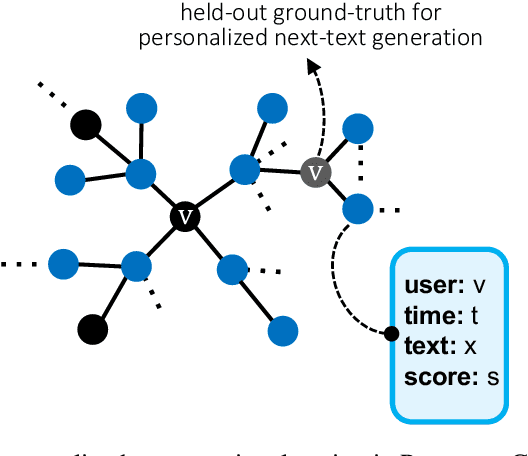
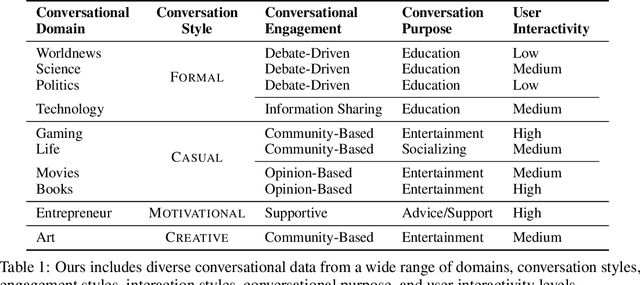
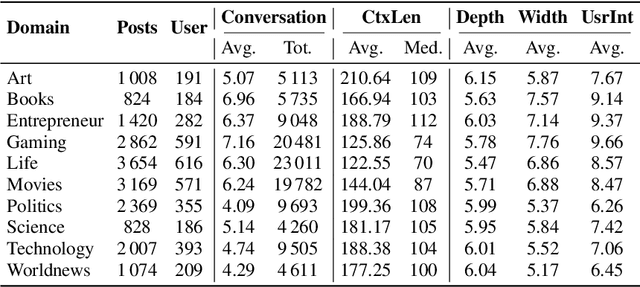
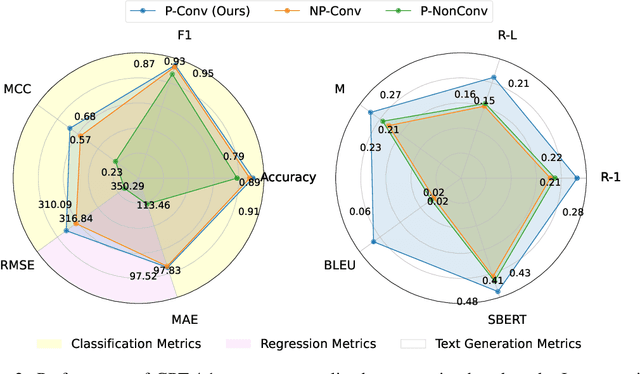
Abstract:We present PersonaConvBench, a large-scale benchmark for evaluating personalized reasoning and generation in multi-turn conversations with large language models (LLMs). Unlike existing work that focuses on either personalization or conversational structure in isolation, PersonaConvBench integrates both, offering three core tasks: sentence classification, impact regression, and user-centric text generation across ten diverse Reddit-based domains. This design enables systematic analysis of how personalized conversational context shapes LLM outputs in realistic multi-user scenarios. We benchmark several commercial and open-source LLMs under a unified prompting setup and observe that incorporating personalized history yields substantial performance improvements, including a 198 percent relative gain over the best non-conversational baseline in sentiment classification. By releasing PersonaConvBench with evaluations and code, we aim to support research on LLMs that adapt to individual styles, track long-term context, and produce contextually rich, engaging responses.
From Selection to Generation: A Survey of LLM-based Active Learning
Feb 17, 2025Abstract:Active Learning (AL) has been a powerful paradigm for improving model efficiency and performance by selecting the most informative data points for labeling and training. In recent active learning frameworks, Large Language Models (LLMs) have been employed not only for selection but also for generating entirely new data instances and providing more cost-effective annotations. Motivated by the increasing importance of high-quality data and efficient model training in the era of LLMs, we present a comprehensive survey on LLM-based Active Learning. We introduce an intuitive taxonomy that categorizes these techniques and discuss the transformative roles LLMs can play in the active learning loop. We further examine the impact of AL on LLM learning paradigms and its applications across various domains. Finally, we identify open challenges and propose future research directions. This survey aims to serve as an up-to-date resource for researchers and practitioners seeking to gain an intuitive understanding of LLM-based AL techniques and deploy them to new applications.
Multi-Objective Alignment of Large Language Models Through Hypervolume Maximization
Dec 06, 2024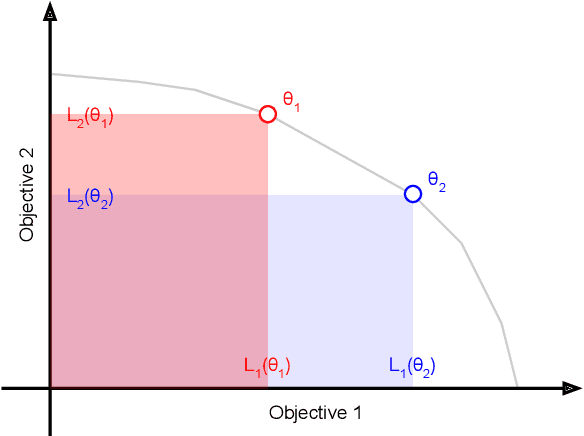

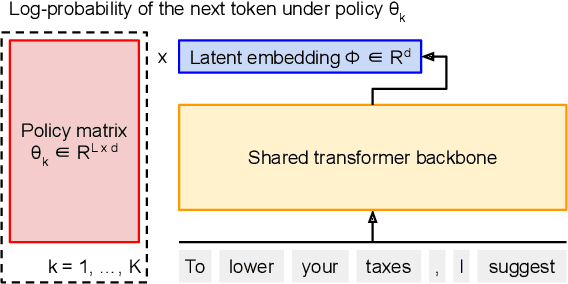

Abstract:Multi-objective alignment from human feedback (MOAHF) in large language models (LLMs) is a challenging problem as human preferences are complex, multifaceted, and often conflicting. Recent works on MOAHF considered a-priori multi-objective optimization (MOO), where human preferences are known at training or inference time. In contrast, when human preferences are unknown or difficult to quantify, a natural approach is to cover the Pareto front by multiple diverse solutions. We propose an algorithm HaM for learning diverse LLM policies that maximizes their hypervolume. This is the first application of a-posteriori MOO to MOAHF. HaM is computationally and space efficient, and empirically superior across objectives such as harmlessness, helpfulness, humor, faithfulness, and hallucination, on various datasets.
Off-Policy Evaluation from Logged Human Feedback
Jun 14, 2024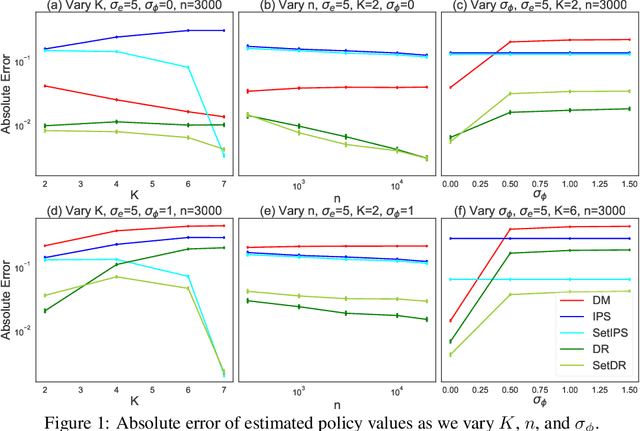
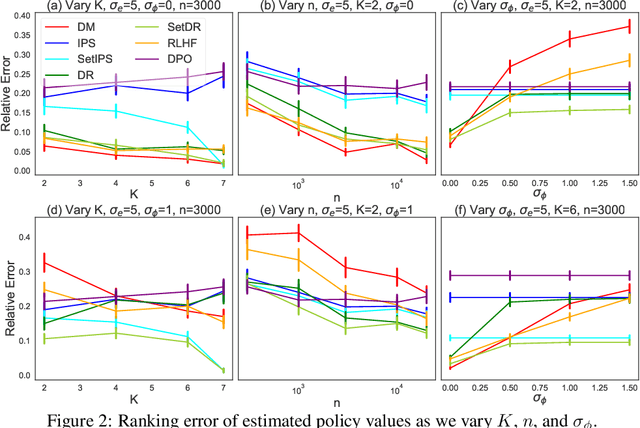
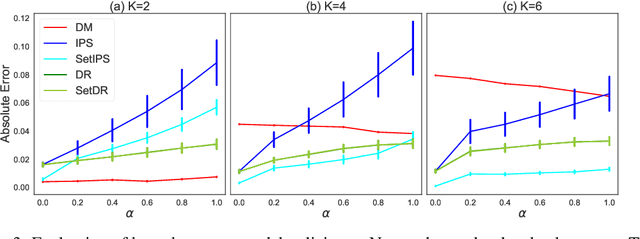

Abstract:Learning from human feedback has been central to recent advances in artificial intelligence and machine learning. Since the collection of human feedback is costly, a natural question to ask is if the new feedback always needs to collected. Or could we evaluate a new model with the human feedback on responses of another model? This motivates us to study off-policy evaluation from logged human feedback. We formalize the problem, propose both model-based and model-free estimators for policy values, and show how to optimize them. We analyze unbiasedness of our estimators and evaluate them empirically. Our estimators can predict the absolute values of evaluated policies, rank them, and be optimized.
Pretraining Decision Transformers with Reward Prediction for In-Context Multi-task Structured Bandit Learning
Jun 07, 2024



Abstract:In this paper, we study multi-task structured bandit problem where the goal is to learn a near-optimal algorithm that minimizes cumulative regret. The tasks share a common structure and the algorithm exploits the shared structure to minimize the cumulative regret for an unseen but related test task. We use a transformer as a decision-making algorithm to learn this shared structure so as to generalize to the test task. The prior work of pretrained decision transformers like DPT requires access to the optimal action during training which may be hard in several scenarios. Diverging from these works, our learning algorithm does not need the knowledge of optimal action per task during training but predicts a reward vector for each of the actions using only the observed offline data from the diverse training tasks. Finally, during inference time, it selects action using the reward predictions employing various exploration strategies in-context for an unseen test task. Our model outperforms other SOTA methods like DPT, and Algorithmic Distillation over a series of experiments on several structured bandit problems (linear, bilinear, latent, non-linear). Interestingly, we show that our algorithm, without the knowledge of the underlying problem structure, can learn a near-optimal policy in-context by leveraging the shared structure across diverse tasks. We further extend the field of pre-trained decision transformers by showing that they can leverage unseen tasks with new actions and still learn the underlying latent structure to derive a near-optimal policy. We validate this over several experiments to show that our proposed solution is very general and has wide applications to potentially emergent online and offline strategies at test time. Finally, we theoretically analyze the performance of our algorithm and obtain generalization bounds in the in-context multi-task learning setting.
SaVeR: Optimal Data Collection Strategy for Safe Policy Evaluation in Tabular MDP
Jun 04, 2024



Abstract:In this paper, we study safe data collection for the purpose of policy evaluation in tabular Markov decision processes (MDPs). In policy evaluation, we are given a \textit{target} policy and asked to estimate the expected cumulative reward it will obtain. Policy evaluation requires data and we are interested in the question of what \textit{behavior} policy should collect the data for the most accurate evaluation of the target policy. While prior work has considered behavior policy selection, in this paper, we additionally consider a safety constraint on the behavior policy. Namely, we assume there exists a known default policy that incurs a particular expected cost when run and we enforce that the cumulative cost of all behavior policies ran is better than a constant factor of the cost that would be incurred had we always run the default policy. We first show that there exists a class of intractable MDPs where no safe oracle algorithm with knowledge about problem parameters can efficiently collect data and satisfy the safety constraints. We then define the tractability condition for an MDP such that a safe oracle algorithm can efficiently collect data and using that we prove the first lower bound for this setting. We then introduce an algorithm SaVeR for this problem that approximates the safe oracle algorithm and bound the finite-sample mean squared error of the algorithm while ensuring it satisfies the safety constraint. Finally, we show in simulations that SaVeR produces low MSE policy evaluation while satisfying the safety constraint.
Optimal Design for Human Feedback
Apr 22, 2024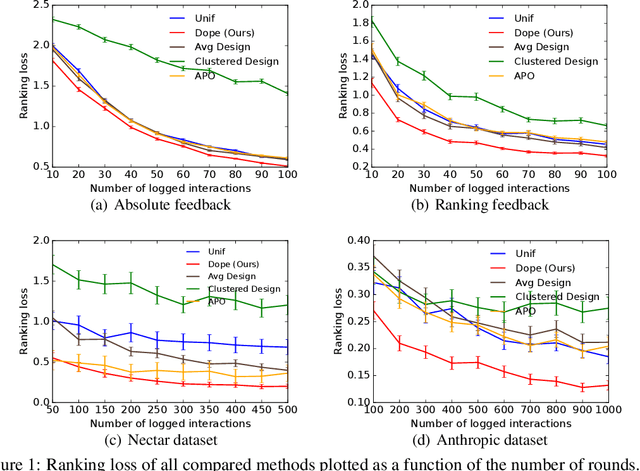


Abstract:Learning of preference models from human feedback has been central to recent advances in artificial intelligence. Motivated by this progress, and the cost of obtaining high-quality human annotations, we study the problem of data collection for learning preference models. The key idea in our work is to generalize optimal designs, a tool for computing efficient data logging policies, to ranked lists. To show the generality of our ideas, we study both absolute and relative feedback on items in the list. We design efficient algorithms for both settings and analyze them. We prove that our preference model estimators improve with more data and so does the ranking error under the estimators. Finally, we experiment with several synthetic and real-world datasets to show the statistical efficiency of our algorithms.
 Add to Chrome
Add to Chrome Add to Firefox
Add to Firefox Add to Edge
Add to Edge